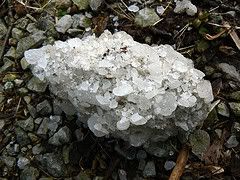 The Food and Drug Administration is being called to study if regulating the amount of sodium in food is worthwhile. Such a study would cost more than a couple of no fax payday loans no credit check, to say the least, but many advisory groups, including the American Medical Association, are in favor of the FDA regulating sodium levels. Sodium is implicated as being far too present in the American diet. The biggest killer within the US is heart disease, which can arise from high blood pressure o! f which sodium is known cause.
The Food and Drug Administration is being called to study if regulating the amount of sodium in food is worthwhile. Such a study would cost more than a couple of no fax payday loans no credit check, to say the least, but many advisory groups, including the American Medical Association, are in favor of the FDA regulating sodium levels. Sodium is implicated as being far too present in the American diet. The biggest killer within the US is heart disease, which can arise from high blood pressure o! f which sodium is known cause.
An FDA Sodium study would take a while
FDA trials are long processes. Sodium, though it is a vital part of the diet, is good for the body up to a certain point, after which it becomes a detriment. A division of the National Academy of Sciences, the Institute of Medicine, has requested the FDA regulate the amount of sodium in food. A recently published Institute of Medicine report states that Americans have too much sodium in their diets. Congress requested the study in 2008.
Sodium is important to get in proper doses
The maintaining and regulation of bodily fluids, from the Health Canada page, requires a certain intake of sodium each and every day. However, more than that can lead to hypertension, higher blood pressure, and heart disease, the number one killer of U.S. adults. The IOM brief pinpoints the greatest source of sodium as ordinary salt.
Salt a heavy presence in unhealthy foods
Many high fat foods, such as french fries, pizza and many preserved and processed foods, a maligned mainstay of the American diet, use more salt than the IOM or American Medical Association would like. The American Medical Association asserts that 150,000 lives might be saved over the next 10 years if the FDA were to limit the amount of salt restaurants and food companies put in their food, according to USA Today. The IOM states that normal intake is 3,400 milligrams daily, over twice the recommended 1,500 milligrams.
Heart disease is the number one killer in the US
A lot more Americans die due to heart disease than anything else. Our diet is considered the prime culprit. Sodium intake that’s too high is known to lead to higher blood pressure, a common reason for heart disease, and a heart transplant even on the insurance of Croesus costs more than fast cash can possibly cover. This could be worth pursuing if there is merit.
Resources
http://www.iom.edu/Reports/2010/Strategies-to-Reduce-Sodium-Intake-in-the-United-States/Report-Brief-Strategies-to-Reduce-Sodium-Intake-in-the-United-States.aspx
http://www.hc-sc.gc.ca/hl-vs/iyh-vsv/food-aliment/sodium-eng.php
http://www.usatoday.com/news/health/2010-04-20-fda-salt-cutback_N.htm
No comments:
Post a Comment